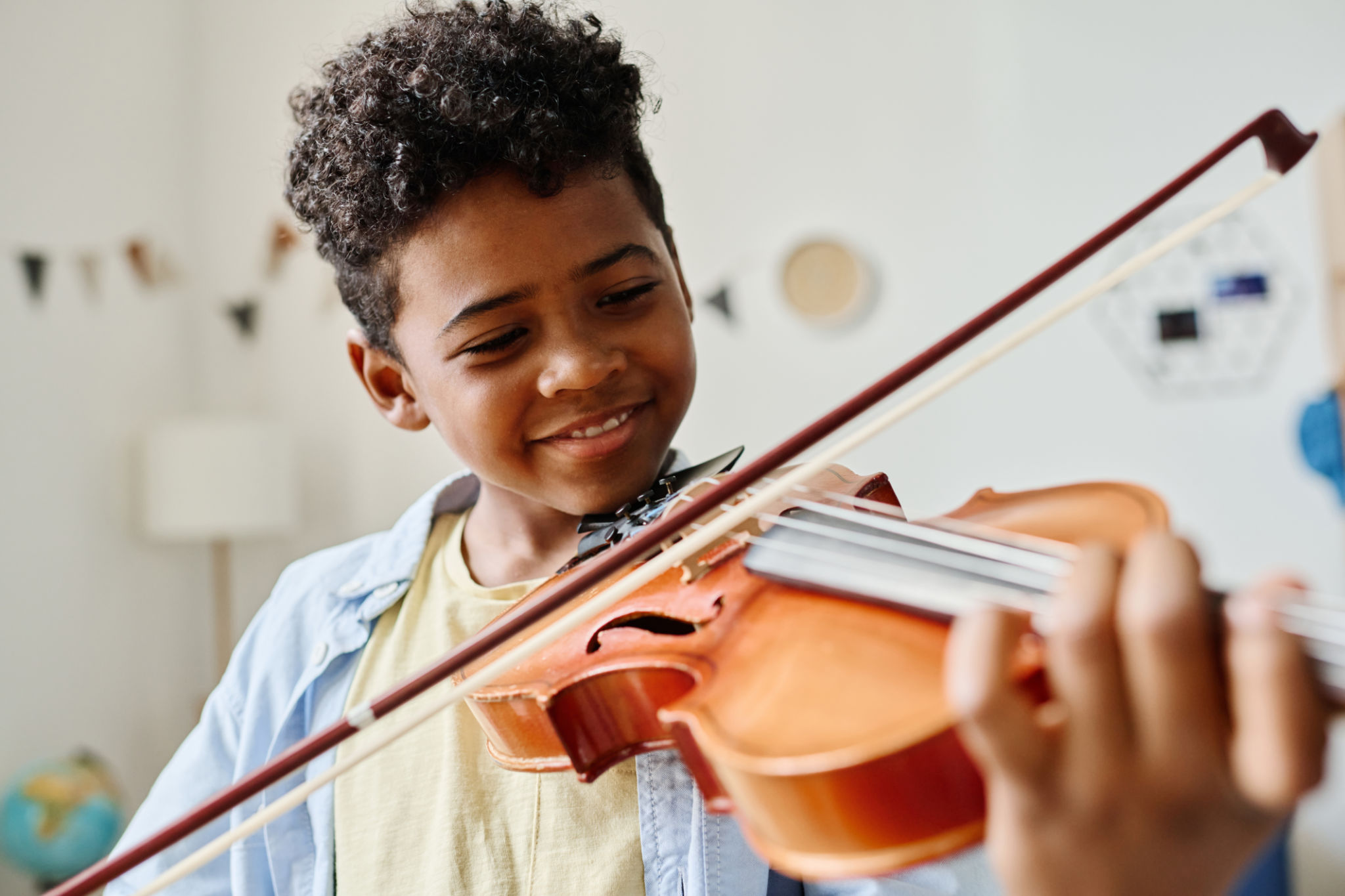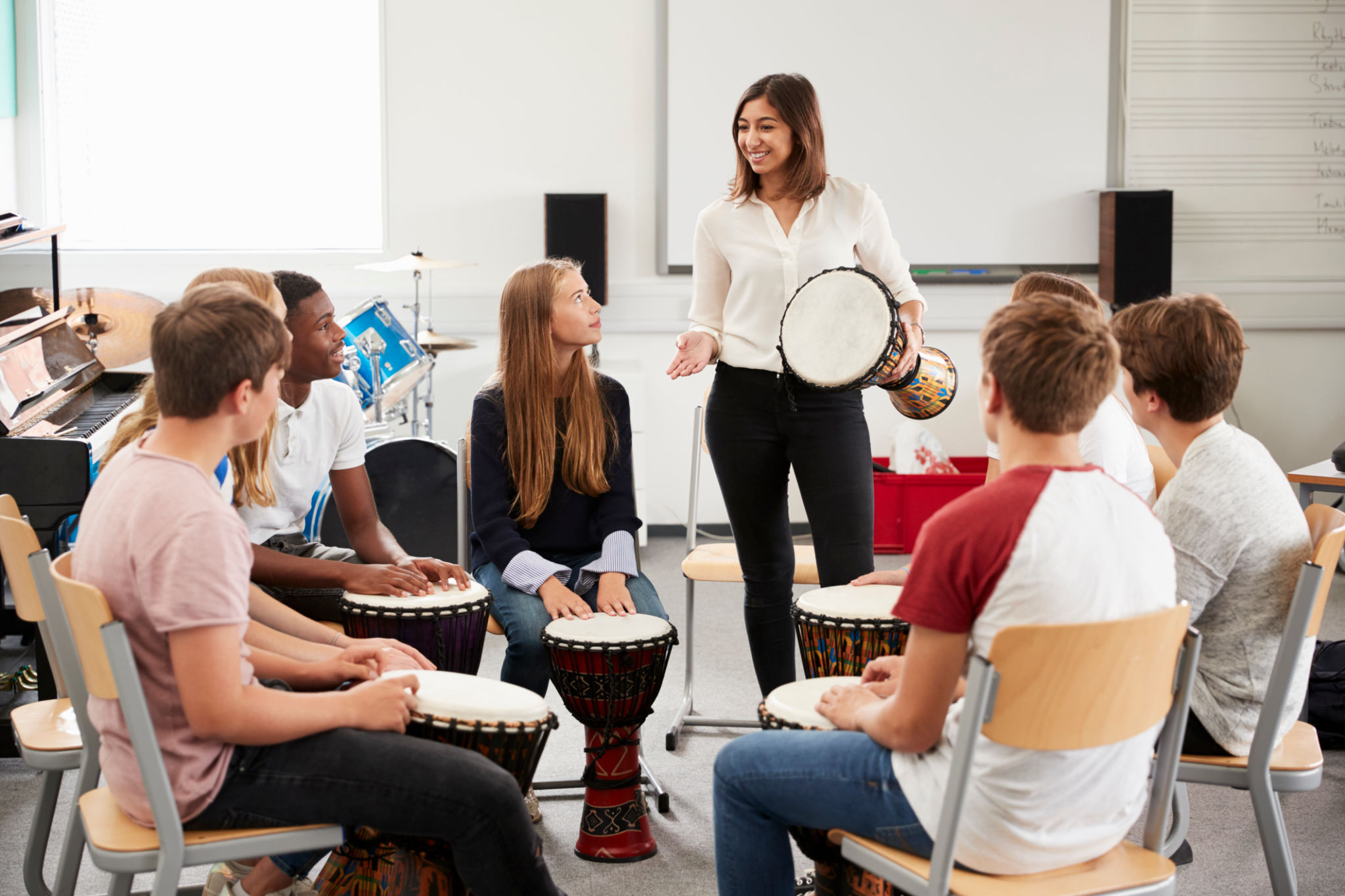Exploring the Benefits of Group Music Lessons for Children
AW
Introduction to Group Music Lessons
Music is a universal language that transcends cultural and linguistic barriers, and introducing children to music can be incredibly beneficial. Group music lessons, in particular, offer a unique and enriching experience for young learners. These lessons not only enhance musical skills but also foster social development and collaboration among children.
Building Social Skills
One of the most significant advantages of group music lessons is the development of social skills. Children learn to communicate and collaborate with their peers, which is crucial for their overall development. Working together in a musical setting encourages children to listen to each other, share ideas, and support one another. This collaborative environment helps build friendships and teaches valuable life skills such as teamwork and empathy.

Boosting Confidence and Self-Esteem
Participating in group music lessons can significantly boost a child's confidence and self-esteem. Performing in front of others, whether in a small group or a larger audience, helps children overcome stage fright and build self-assurance. As they master new skills and receive positive feedback from instructors and peers, children gain a sense of accomplishment that translates into greater confidence in other areas of their lives.
Enhancing Cognitive Skills
Music education has been linked to improved cognitive functions in children. Group music lessons can enhance memory, attention, and problem-solving skills. Learning to play an instrument or sing in harmony requires concentration and discipline, which strengthens mental faculties. Moreover, understanding musical concepts can improve mathematical abilities, as both subjects involve recognizing patterns and structures.

Encouraging Creativity
Group music lessons provide an excellent platform for children to express themselves creatively. Through improvisation and composition exercises, children can explore their musical ideas in a supportive environment. This creative outlet allows them to experiment with sounds, rhythms, and melodies, fostering a deeper appreciation for music and honing their artistic skills.
Developing Discipline and Patience
Learning music is a process that requires dedication, patience, and perseverance. In a group setting, children witness the progress of their peers, which can be both motivating and instructive. They learn the importance of regular practice and the value of hard work as they develop their musical abilities. This discipline extends beyond music, impacting other areas of their academic and personal lives.

Access to Diverse Musical Styles
Group music lessons often expose children to a variety of musical styles and genres. This diversity broadens their horizons and helps them appreciate different forms of music. Exposure to various styles also encourages adaptability and open-mindedness, important qualities for personal growth.
Creating Lifelong Memories
The experiences children gain from group music lessons often create cherished memories that last a lifetime. The bonds formed with fellow musicians during rehearsals and performances are unique and memorable. These shared experiences not only enrich their musical journey but also leave a lasting impact on their personal development.
Conclusion
In conclusion, group music lessons offer a multitude of benefits for children, ranging from enhanced social skills to improved cognitive abilities. By engaging in these lessons, children have the opportunity to grow both musically and personally. Encouraging participation in group music activities can provide children with the tools they need to succeed in various aspects of life.
